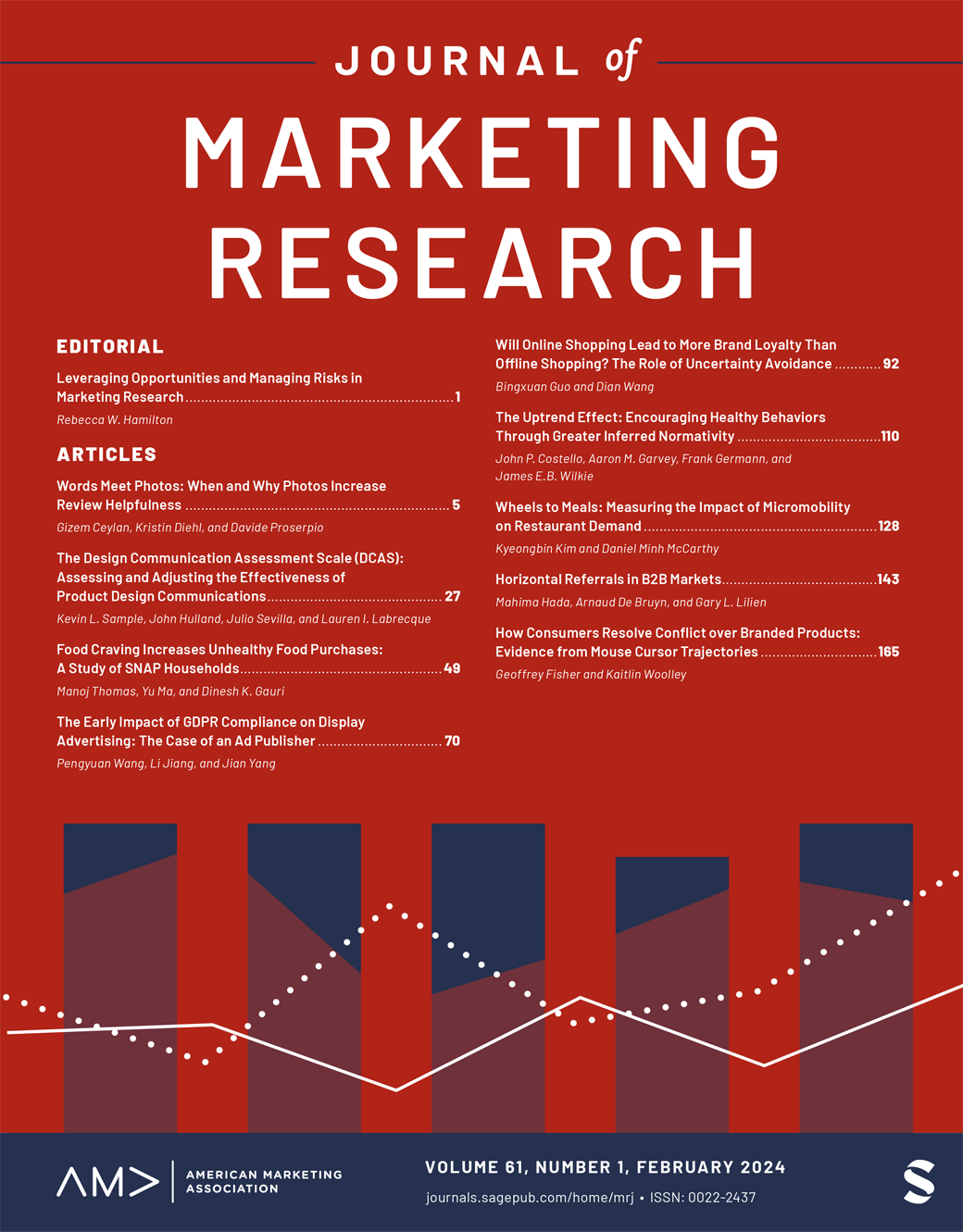EXPRESS: Effective Implementation of Predictive Sales Analytics
IF 5
1区 管理学
Q1 BUSINESS
引用次数: 2
Abstract
Sales managers are unlikely to reap the benefits of implementing predictive analytics applications when salespeople show aversion to or lack understanding of these applications. For managers, it is essential to understand which factors mitigate or exacerbate these challenges. This article investigates these factors by studying the implementation of an application that predicts customer churn. Using 9.7 million transactions from a B2B company, the authors develop a predictive model of customer churn, implement it in a field experiment, and study its treatment effects using causal forests. Furthermore, the authors manipulate one specific mitigation strategy proposed by prior literature: the fostering of users’ realistic expectations regarding the accuracy of an algorithm. The results show that the effectiveness of the churn prediction application strongly depends on customer characteristics (most importantly the predicted churn probability and prior revenue) and salesperson characteristics (technology perceptions, abilities, and selling orientations). Fostering realistic expectations only improves the effectiveness of the churn prediction under very specific circumstances. Two follow-up stimuli-based experiments conceptually replicate key results of the field study. Therefore, this paper helps build theory on predictive sales analytics and provides specific guidance to managers aiming to increase their return on analytics investments.EXPRESS:预测性销售分析的有效实施
当销售人员对预测分析应用程序表现出厌恶或缺乏理解时,销售经理不太可能从实施这些应用程序中获益。对于管理者来说,了解哪些因素可以缓解或加剧这些挑战至关重要。本文通过研究预测客户流失的应用程序的实现来研究这些因素。利用一家B2B公司的970万笔交易,作者开发了一个客户流失的预测模型,并在现场实验中实现了该模型,并使用因果森林研究了其处理效果。此外,作者操纵了先前文献提出的一种特定的缓解策略:培养用户对算法准确性的现实期望。结果表明,流失预测应用程序的有效性在很大程度上取决于客户特征(最重要的是预测的流失概率和先前收入)和销售人员特征(技术感知、能力和销售方向)。培养现实的期望只会在非常特定的情况下提高流失预测的有效性。两个基于刺激的后续实验在概念上复制了实地研究的关键结果。因此,本文有助于建立预测性销售分析的理论,并为旨在提高分析投资回报率的管理者提供具体指导。
本文章由计算机程序翻译,如有差异,请以英文原文为准。
求助全文
约1分钟内获得全文
求助全文
来源期刊

Journal of Marketing Research
BUSINESS-
CiteScore
10.30
自引率
6.60%
发文量
79
期刊介绍:
JMR is written for those academics and practitioners of marketing research who need to be in the forefront of the profession and in possession of the industry"s cutting-edge information. JMR publishes articles representing the entire spectrum of research in marketing. The editorial content is peer-reviewed by an expert panel of leading academics. Articles address the concepts, methods, and applications of marketing research that present new techniques for solving marketing problems; contribute to marketing knowledge based on the use of experimental, descriptive, or analytical techniques; and review and comment on the developments and concepts in related fields that have a bearing on the research industry and its practices.
 求助内容:
求助内容: 应助结果提醒方式:
应助结果提醒方式:


